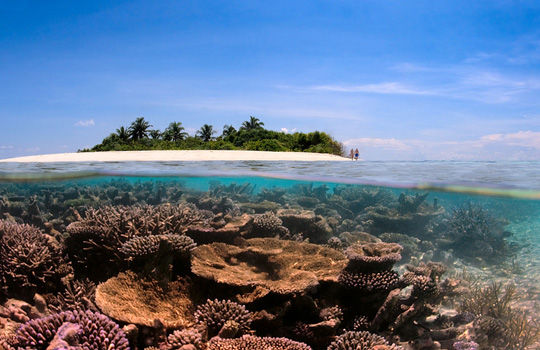Can coral reefs keep up with a warming planet?
“Assisted Evolution” offers hope for the future of corals.

16 Feb 2019, 09:00
The oceans are warming and scientists are unsure if coral reefs can survive without intervention.
Coral reefs have the highest biodiversity and economic value of any ecosystem on the planet, rivalling only tropical rainforests. While coral reefs cover only two percent of the world’s oceans, almost a quarter of all marine life rely on them for survival. They protect coastlines from erosion and storms and provide habitat and nursery for fish and other marine life. They provide food and livelihood from fishing, tourism and recreation for 500 million people in coastal areas and islands around the world, including the Maldives, a low-lying island nation built on coral reefs that would not have been formed without them.
Though corals are living organisms, they do not have to die of old age. Theoretically, they could continue to live and grow as long as the surrounding environment would allow. There are corals alive today that are more than 4,000-years-old, and it is possible that even older corals exist. Corals require very specific conditions to survive, which is why they only occur where they do. Yet throughout natural cycles of the earth warming and cooling, corals have adapted and survived for millions of years.
Climate Change and its Effects on Coral Reefs
Become a member
Get full access to our archive and personalise your experience.
Already a member?
Discussion
No comments yet. Be the first to share your thoughts!
No comments yet. Be the first to join the conversation!
Join the Conversation
Sign in to share your thoughts under an alias and take part in the discussion. Independent journalism thrives on open, respectful debate — your voice matters.




